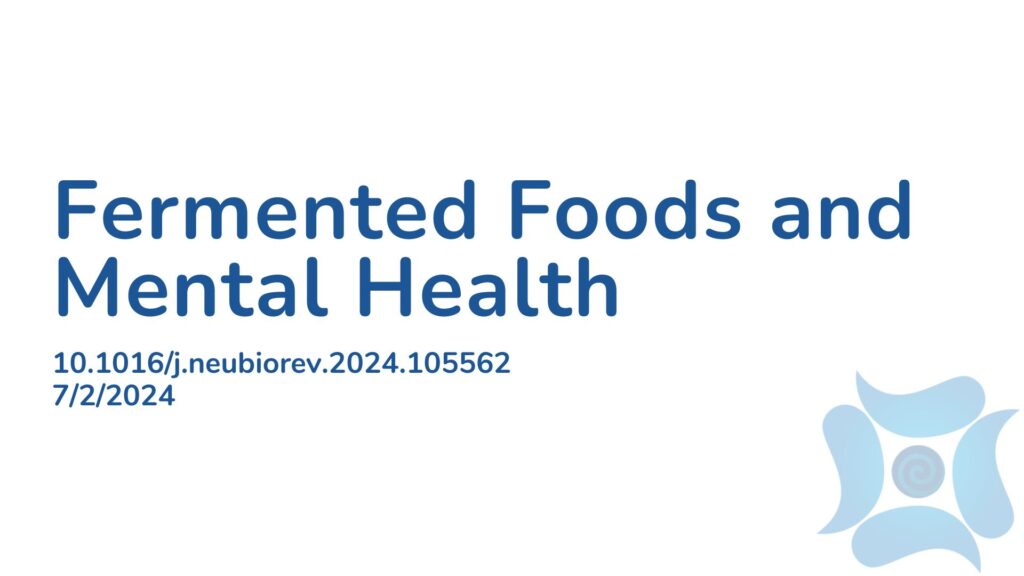Summary:
Emerging evidence shows that the gut microbiota, a part of the human digestive system, plays a key role in brain function through the gut-brain axis. This relationship links a diverse microbial community in the gut to the central nervous system and is influenced by factors like diet, lifestyle choices, age, and medication use. Available research suggests that fermented foods may positively impact mental health, however, research in this area is weak and poorly designed. Fermented foods, rich in beneficial microbes and bioactive compounds, offer affordable and accessible ways to modulate the gut microbiota, potentially enhancing brain health. Common examples include kombucha, yogurt, sauerkraut, tempeh, and kefir. This review explores what’s missing in current research to understand this relationship. It also explores the diversity of fermented foods and summarizes their potential to influence gut microbiota composition and the gut-brain axis. The authors highlight that fermented foods can significantly impact health through their diverse bacterial strains, metabolites, and bioactive compounds, which can be further optimized to enhance brain health. However, they stress that more human studies, including unfermented controls, are needed to fully understand their benefits on the gut-brain axis. Despite challenges in research design, fermented foods hold great promise as future microbiota-based therapeutics for mental health.
Abstract:
Over the past two decades, whole food supplementation strategies have been leveraged to target mental health. In addition, there has been increasing attention on the ability of gut microbes, so called psychobiotics, to positively impact behaviour though the microbiota-gut-brain axis. Fermented foods offer themselves as a combined whole food microbiota modulating intervention. Indeed, they contain potentially beneficial microbes, microbial metabolites and other bioactives, which are being harnessed to target the microbiota-gut-brain axis for positive benefits. This review highlights the diverse nature of fermented foods in terms of the raw materials used and type of fermentation employed, and summarises their potential to shape composition of the gut microbiota, the gut to brain communication pathways including the immune system and, ultimately, modulate the microbiota-gut-brain axis. Throughout, we identify knowledge gaps and challenges faced in designing human studies for investigating the mental health-promoting potential of individual fermented foods or components thereof. Importantly, we also suggest solutions that can advance understanding of the therapeutic merit of fermented foods to modulate the microbiota-gut-brain axis.
Article Publication Date: 7/2/2024
DOI: 10.1016/j.neubiorev.2024.105562




